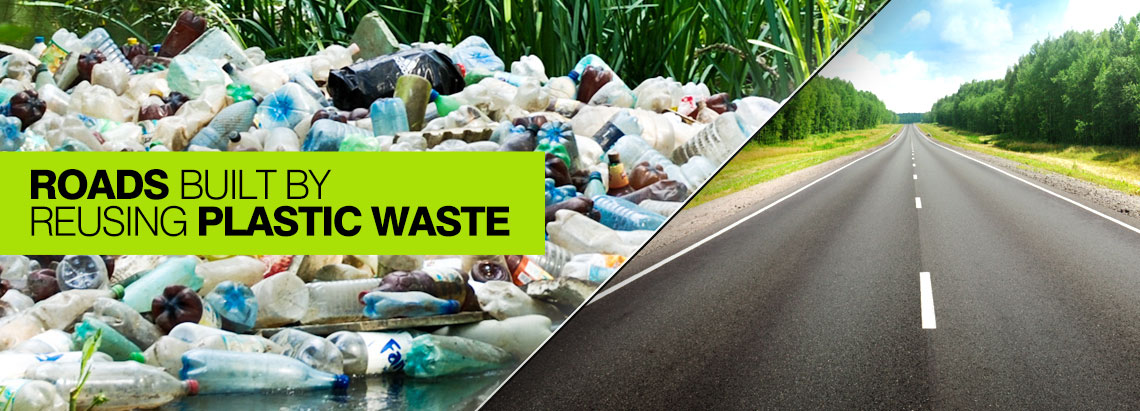- Sustainable Planet -
- 3mins -
- 761 views
India has been building roads from recycled plastic waste and plans to build a whole lot more
Recycled plastic-infused road surfaces are more durable than regular asphalt, safer, cheaper to build and better for the environment. India has been leading the world in this technology and some 100,000 km of the new surface has been successfully laid.
India leading the world in resurfacing roads with recycled plastic waste
Safer, more durable, cheaper to build and better for the environment, a new road building technique for the 21st century is advancing fast in India today. Latest reports indicate the current length of Indian roads using the innovative, home-grown technique could stretch for more than 100,000km.
Using recycled plastic to build roads not only helps reduce pollution but also creates jobs
More than 33,796 km of roads in India were made using plastic waste, according to a World Economic Forum report of 2015. A more recent report, however, states that the actual length of Indian roads using the innovative, home-grown technique runs for more than 100,000km (as of October 2017).
Using recycled plastic to build roads not only helps reduce pollution but also creates jobs, say experts. And that’s not all, reports Gulf News.
India’s ‘plastic roads’ made from recycled materials are not only greener, but are also stronger and require less maintenance — they could last three-to-five times as long as conventional road structures, according to new research.
Plastic waste — mostly (but not confined to), water or soda bottles — are first sorted. After sorting, the material is cleaned, dried, and shredded. The shredded plastic is mixed and melted at around 170°C. Hot bitumen is then added and mixed with the melted plastic. After mixing, the mixture is laid as one would with regular asphalt.
Indian’s home-grown and affordable road technology that salvages plastic waste could be used in a massive road rebuilding underway, analysts said.
“Plastic roads will not only withstand future monsoon damage but will also solve the problem of disposing of non-recyclable plastic,” said Isher Judge Ahluwalia, former head of a government committee on urban infrastructure.
Each kilometre of a single-lane tar road can consume one tonne of plastic waste, and the plastic can double or even triple the life of the road, said the economist in a paper published in October with Almitra Patel, a solid waste management expert.
Source: GulfNews

The mix cuts the quantity of bitumen required by 8-10% and produces better all-round end product
The technology was developed by Rajagopalan Vasudevan, a chemistry professor at Thiagarajar College of Engineering in the southern city of Madurai, and uses finely-shredded plastic waste that is added to heated bitumen. This mix is then poured over stones.
Although plastic bottles are the main raw material, the plastic waste can include anything from sweet wrappers to shopping bags. The mix cuts the quantity of bitumen required by 8-10%, Vasudevan said.
He developed the technology in 2002 and first built a plastic road in his college before approaching state officials.
“We spend so much on building roads that develop potholes and need rebuilding in no time,” Vasudevan told the Thomson Reuters Foundation.“The road I built is still intact — there are no potholes, no cracks. That is proof of its strength and durability, plus it uses waste plastic that otherwise litters streets and rivers.”
At least 11 states, including Vasudevan’s home state of Tamil Nadu, have used the technology to build more than 100,000km of roads, he said.
(Below, watch Vasudevan‘s TEDxTalk on his low-cost disruptive technology to convert plastic waste of any kind into paved roads that are twice as strong, waterproof, last up to 60 years and have almost zero maintenance cost.)
Source: GulfNews

